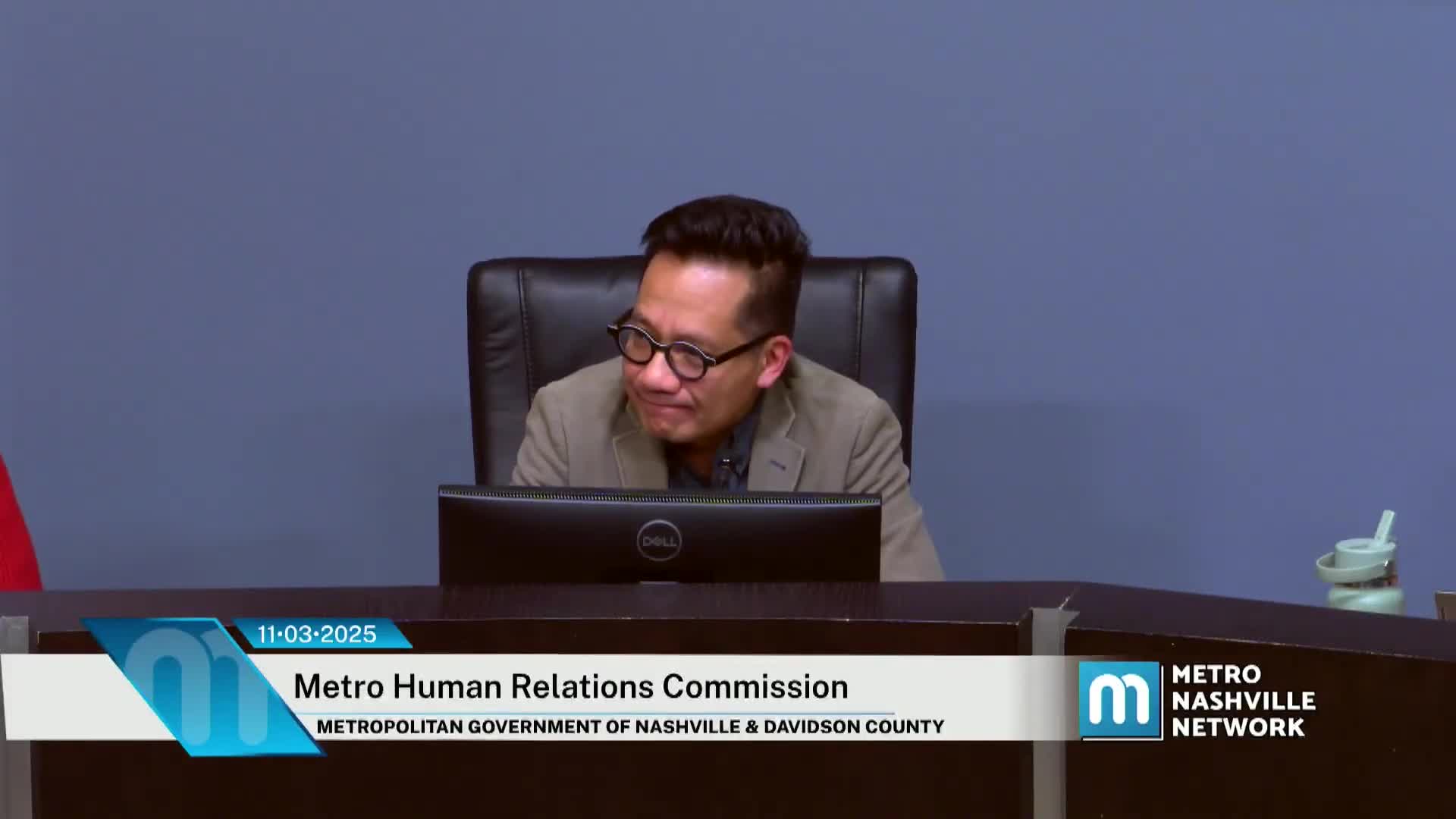Metro Arts begins disbursing $3.2 million in grants, shifts funding toward smaller groups
Get AI-powered insights, summaries, and transcripts
Subscribe
Summary
Ashley Batchelder, interim executive director of the Metro Nashville Arts Commission, said the agency has begun dispersing roughly $3.2 million in the latest grant cycle, directing about $1.3 million to 86 Thrive grants and about $1.9 million to 79 operating grants.
Ashley Batchelder, interim executive director of the Metro Nashville Arts Commission, told the Metro Human Relations Commission that payment for the latest grant cycle began the week of the meeting and that the commission approved the awards on Sept. 25.
"We have 86 Thrive grants that we are funding through this round of grants. This is up from 75 Thrive grants the last cycle, and this totals about $1,300,000," Batchelder said. She added that 58 of the 86 are first-time Thrive recipients. Batchelder also said the Arts Commission is supporting 79 arts organizations in this cycle, totaling about $1,900,000, and that nine of those organizations are first-time applicants.
The Arts Commission described a policy shift to direct a larger share of its grant budget to smaller organizations. Batchelder said the commission now allocates roughly 40% of its grant budget to the Thrive program, compared with about 6% four years ago. She also said the commission adjusted its operating-grant formula to award more toward smaller and midsize groups and to reduce the gap between the largest and smallest awards; the largest award this cycle was about $46,000, Batchelder said, down from a prior high of about $187,000.
Batchelder said the commission held public office hours and community meetings during the year to increase outreach and asked commissioners to view the grant materials and contact staff with questions. She described the current grant formula as "flat" — based on an organization's budget size rather than a larger set of impact metrics — and said the Arts Commission plans to review application categories and question wording before the next cycle to improve fit for different applicants.
On staffing and operations, Batchelder said the department is expanding its grants team and expects to have a grants lead in place by January, with an additional position to follow. She said improved internal processes were part of the reason the payments began dispersing faster than in some prior cycles.
Why this matters: The change in allocation and a focus on first-time recipients are intended to push funding toward smaller arts groups that historically have had less access to operating support. The commission's stated goal is to make awards more equitable and to stabilize grant distribution across cycles.
Sources and attributions: Statements and figures in this article are drawn from Ashley Batchelder's public comment to the Metro Human Relations Commission during the Nov. 2024 meeting. Direct quotes are attributed to Batchelder.
